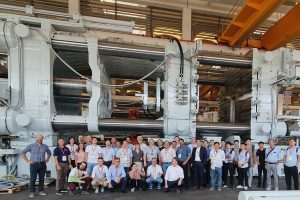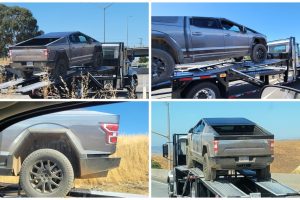- 🚗 Tesla has issued a recall for the Cybertruck due to a software-related delay in the rearview camera system.
- 📡 The delay issue is resolved with a free over-the-air software update initiated on September 18, 2024.
- 📋 27,185 Cybertrucks produced between November 13, 2023, and September 14, 2024, are affected by the recall.
- 🕑 The rearview camera may remain black for 6-8 seconds when placed in reverse, increasing collision risk.
- 🛠️ Tesla identified the issue on September 12, 2024, as part of an internal compliance audit.
- 📰 45 warranty claims and four field reports related to the issue have been noted, with no recorded collisions or injuries.
- 🔧 The fix involves a software release, 2024.32.5.2 or later, which resolves the rearview camera delay without further action.
Tesla recently issued a recall for its much-anticipated Cybertruck, stirring conversations within the automotive industry and among technology enthusiasts. The recall, concerning a delay in the rearview camera system, demonstrates Tesla’s commitment to safety and technological excellence while highlighting the ever-evolving intersection of advanced vehicle software and consumer safety.
Understanding the Cybertruck Recall
On September 18, 2024, Tesla began rolling out a free over-the-air (OTA) software update to address a reported delay in the rearview camera system of its Cybertruck model. This recall affects a significant batch, 27,185 vehicles produced between November 13, 2023, and September 14, 2024. The issue identified is a potential 6-8 second latency in the camera image display upon shifting the vehicle into reverse, a delay that could hinder visibility and pose safety risks.
The Issue Breakdown
The heart of the problem lies in a software glitch detected during an internal audit on September 12, 2024. Under specific circumstances, the rearview camera image might not promptly display within the time frame required by federal safety standards, as the vehicle’s system may not complete its full shutdown and startup cycle before the driver potentially initiates a reverse maneuver.
Tesla’s response to this discovery is noteworthy. A swift investigation from September 13, 2024, to September 19, 2024, enabled the development of a corrective OTA software patch, underscoring the company’s proactive approach to quality assurance. This fix, embedded in software release 2024.32.5.2 or later, was delivered without necessitating further action from owners, a testament to the practical applications of Tesla’s digital-first strategy in vehicle management.
Implications for Tesla Owners
For Cybertruck owners, the recall comes with certain reassurances. Tesla confirmed that while there had been 45 warranty claims and four field reports possibly related to the camera delay, there have been no reported injuries or accidents. The seamlessness with which Tesla has addressed the issue through software ingenuity reflects both a commitment to customer safety and a robust, digital innovation infrastructure.
Safety and Software: A New Era
- Emphasis on Proactive Safety Measures: Tesla’s rapid deployment of a software update illustrates its proactive stance on consumer safety. By resolving critical issues rapidly and efficiently, Tesla positions itself as a leader in safety technology within the automotive sector.
- Advancements in OTA Technology: The recall showcases the transformative potential of over-the-air updates in modern vehicles. This capability not only accelerates troubleshooting processes but also minimizes inconvenience for users by negating the need for physical dealership visits.
Broader Implications on the Automotive Landscape
This specific recall may signal a broader trend within the automotive industry. As vehicles become more technologically sophisticated, the potential for software-related recalls could increase, necessitating similar rapid response and resolution frameworks from other manufacturers.
Key Takeaways for the Industry
- Increased Reliance on Technology: With increased digital integration, carmakers must ensure rigorous testing and quality assurance of software systems to preempt potential safety issues.
- Future of Recalls: The conveniency of resolving critical vehicle issues remotely may redefine traditional perceptions of recalls in the automotive space.
- Consumer Expectations: Customers may increasingly expect seamless and rapid solutions to vehicle issues, prioritizing brands that can deliver on such expectations effectively.
Conclusion
Tesla’s adept handling of the Cybertruck rearview camera delay through innovative software solutions highlights the company’s agility and commitment to safety. While this incident underscores the growing pains of a tech-driven automotive era, it also points toward a future where digital problem-solving elevates customer experience and safety standards.
Tesla continues to redefine the automotive space, inviting industry peers to adopt similar problem-solving paradigms, ultimately paving the way for a safer and more technologically enriched driving future.





